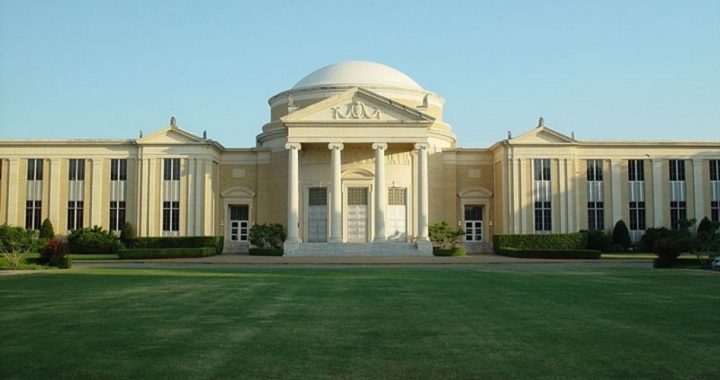
The Southern Baptist Convention (SBC) has announced that it will prohibit any military chaplain endorsed by the denomination from officiating at same-sex “marriages” or other events that promote or sanction homosexuality. The SBC is responsible for the largest share of active-duty military chaplains, and the North American Mission Board (NAMB), its chaplaincy commissioning arm, explained in a press release that it released the new guidelines in response to the Pentagon’s decision to recognize same-sex “marriage” and extend benefits to the “spouses” of homosexual military personnel.
“Our chaplains want to uphold the authority and relevancy of Scripture while continuing to serve in a very diverse setting,” said Doug Carver, a retired Army major general and head of the NAMB chaplaincy arm. “We believe these updated guidelines will help them do that while still sharing the love and the hope of Christ with everyone.”
The new guidelines stipulate that “NAMB-endorsed chaplains will not conduct or attend a wedding ceremony for any same-sex couple, bless such a union, or perform counseling in support of such a union, assist or support paid contractors or volunteers leading same-sex relational events, nor offer any kind of relationship training or retreat, on or off of a military installation, that would give the appearance of accepting the homosexual lifestyle or sexual wrongdoing.”
Additionally the guidelines emphasize that SBC chaplains may not participate in jointly led worship services “with a chaplain, contractor or volunteer who personally practices a homosexual lifestyle or affirms a homosexual lifestyle or such conduct.”
The guidelines also address Christian doctrine, stating that all ministries carried out by an SBC-endorsed chaplain “regarding human sexuality will reflect the historic, natural and biblical view of marriage as God’s lifelong gift of ‘the uniting of one man and one woman in covenant commitment for a lifetime.’”
Acknowledging that SBC chaplains serve in a “pluralistic setting” in which not all participants will embrace traditional Christian morality, the policy clarification states that the SBC expects, “under U.S. Department of Defense guidelines, that the rights and freedoms of chaplains will be protected so they may ‘preach, teach and counsel in accordance with the tenets of their denominational faith group and their own religious conscience.’”
Similarly, SBC chaplains are expected to treat “all service members, regardless of rank or behavior, with Christ-centered dignity, honor and respect while assisting the institutional leadership in its religious mission requirements and responsibilities as guaranteed by the First Amendment to the United States Constitution.”
Carver said he was confident “that our chaplains are already conducting their ministries with sound doctrine and in accordance” with SBC doctrine and ministry guidelines. “These guidelines simply provide clarification on specific issues and give our chaplains the freedom and protection for their ministry.”
NAMB president Kevin Ezell noted that “for many members of our military — especially those deployed around the globe — our chaplains are the only pastors they have. That’s why it is so important that they uphold sound doctrine, while showing everyone the love and forgiveness Jesus offers. We all need to be committed to praying for them in these challenging days.”
The military newspaper Stars and Stripes stated that among the military’s 2,884 active duty and 2,375 Reserve chaplains, the SBC claims a total of 439 active duty and 268 Reserve chaplains. “Of active duty service members,” tallied the military newspaper, “nearly 140,000 call themselves Baptists, and roughly 13,000 say they are part of the Southern Baptist Convention.”
According to the Christian News Network, last year Representative Todd Akin (R-Mo.) proposed an amendment to the National Defense Authorization Act that would specifically protect military chaplains from being forced to perform homosexual “marriages” or other ceremonies that violated their consciences. The amendment stipulated: “No member of the Armed Forces may direct, order, or require a chaplain to perform any duty, rite, ritual, ceremony, service, or function that is contrary to the conscience, moral principles, or religious beliefs of the chaplain, or contrary to the moral principles and religious beliefs of the endorsing faith group of the chaplain.”
While the Obama administration expressed its opposition to the amendment as “potentially harmful to good order and discipline,” the president ultimately signed the defense bill with the conscience protection included.
Within months, recalled the Christian News Network, “one of the first homosexual ceremonies officiated at a military base took place at New York’s West Point, the nation’s oldest military academy. Penelope Gnesin and Brenda Sue Fulton, the latter of whom graduated from the academy, exchanged vows in a ceremony led by a senior Army chaplain.”
However, continued the account, “as none of the chaplains at West Point were willing to officiate the event, a chaplain had to be commissioned from out of state.” It is not known if those refusing to officiate were SBC chaplains.
In August The New American reported on a 19-year Air Force veteran who was relieved of his duties because of his refusal to affirm homosexual behavior. Senior Master Sergeant Monk, who had recently returned from deployment, was serving as a first sergeant at Lackland Air Force Base in San Antonio, when he found himself at odds with his new commander, an openly homosexual Air Force officer. The lesbian officer was reportedly upset over Monk’s refusal to agree to disciplinary action against an Air Force instructor over comments the instructor had made about same-sex “marriage.”
Photo of the Southwestern Baptist Theological Seminary’s main administrative building



